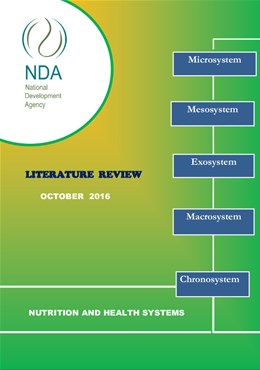Nutrition And Health Systems In Ecd
There are four broad theories that guide practice in the ECD namely, behaviourism, social learning theory, cognitive developmental theory, socio-cultural theory and the ecological systems theory (Grisham-Brown, 2009). For the purposes of this study the Ecological Systems theory by Bronfenbrenner will be adopted, justification and relevance of this theory to implement ECD programme for the 0-4 year olds in the context of legislation and policy in two District Municipalities of Buffalo City, Chris Hani and Joe Gqabi in the Eastern Cape Province.
Bronfenbrenner’s Ecological System Theory This study is guided by the Bronfenbrenner’s 1979 theory, which states that children develop within a complex system of relationships affected by multiple levels of the environmental factors. According to Bronfenbrenner (1998) child development takes place through processes of progressive more complex interactions between children and the different levels of the exosystemic layers which include: the immediate environment, such as the family, the peer group, the child’s characteristics, and the wide community. It is what happens within the child’s settings such as the family, playground, the peers, service institutions and the larger community that influences his/her development and education (Bronfenbrenner, 2005).

